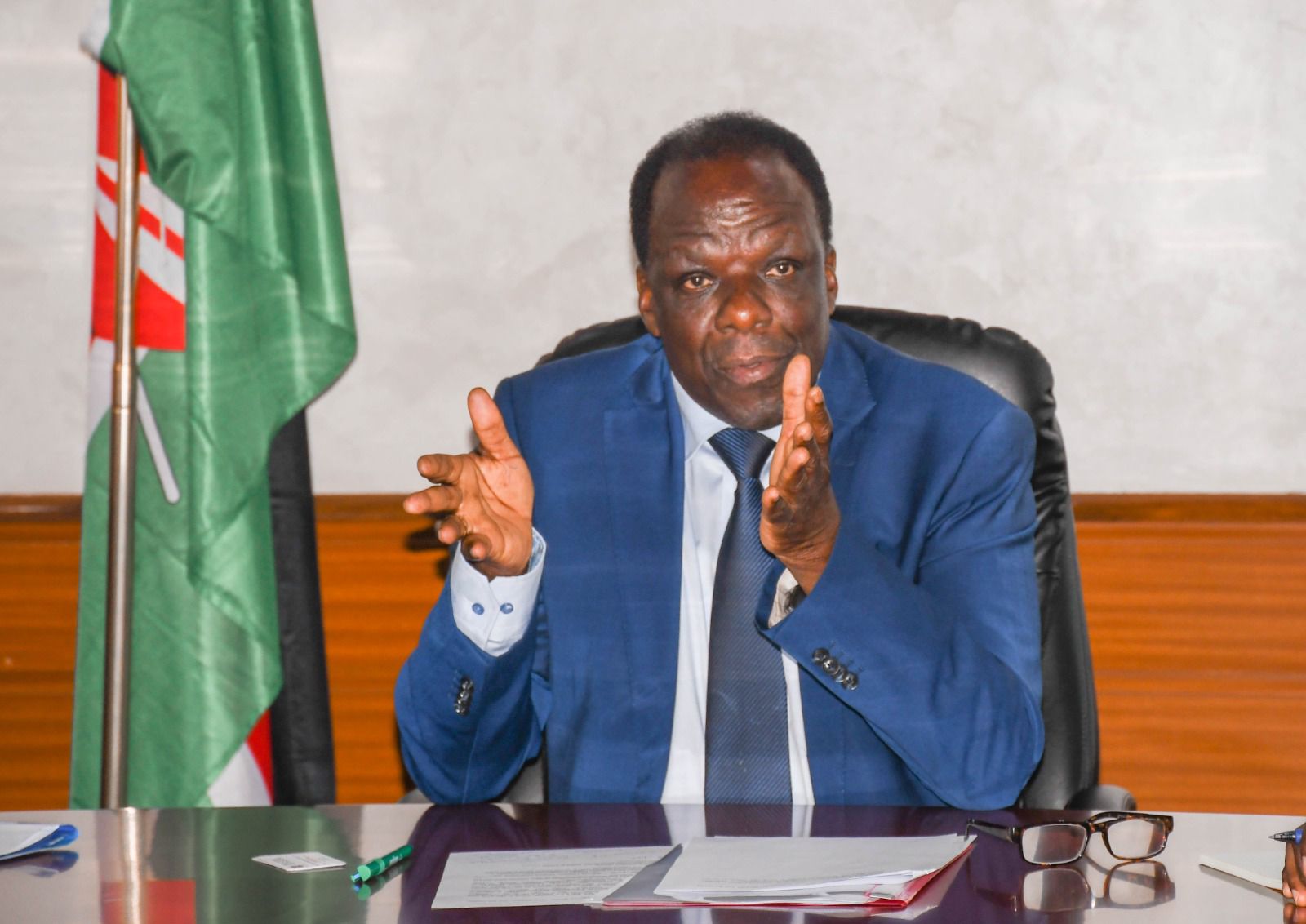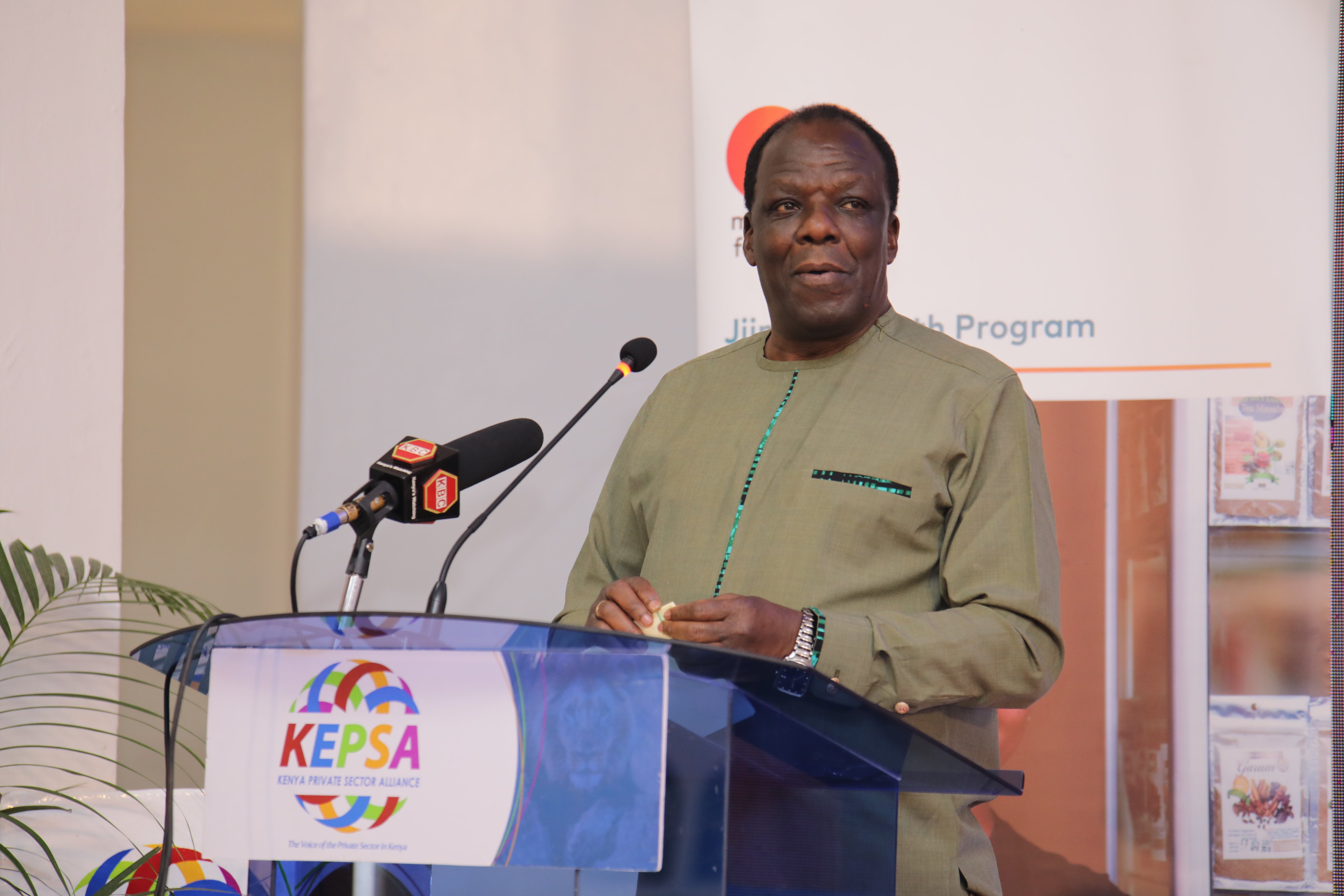The Ministry of Cooperatives and MSMEs Development has dismissed a report by the Kenya Human Rights Commission (KHRC) calling for the scrapping of the Hustler Fund.
In a statement on Monday, August 4, Cooperatives and MSMEs Development Cabinet Secretary Wycliffe Oparanya described the report as misleading, unprofessional, and politically driven.
"Our attention has been drawn to a report widely published by the Kenya Human Rights Commission claiming the failure of the Hustler Fund, drawing conclusions that are politically veiled. The title of the report explicitly betrays the whole purpose of the study," the statement read.
Oparanya criticised the methodology used in the report, saying it wrongly generalised findings from the Fund’s first month of operation, casting doubt on the legitimacy of its conclusions.
"Of critical concern is the attempt by the report to generalise the findings of the first month of the Fund period (between November 2022–December 2022) to draw immature conclusions and recommendations. This questions the level of professionalism and the integrity of the data instruments and the processes that were deployed in the study," the statement continued.
Read More
The ministry also expressed concern that the researchers behind the report never consulted the Hustler Fund secretariat or the ministry itself during its study.
"As the ministry in charge of the implementation of the Fund, we were never approached, and we have since confirmed from the management of the Fund that they too were not approached to respond or give clarity to all the claims and nuances that have come out of the study. If the NGO was genuine in its pursuits, they would at least have adhered to the professional ethical standards that govern such studies," the statement added.
Oparanya also drew attention to the original launch date of the KHRC report, suggesting it was politically timed to coincide with the anniversary of the Finance Bill 2024 protests.
"We also take note of the initial launch for the said report, which had been scheduled for June 24th, 2025, to coincide with the First anniversary of the Finance Bill 2024 protests. Now, looking at some of the conclusions and premature recommendations, it is sufficient to say that the purpose of this malicious and contemptuous unprofessional study was to provide a tool for public incitement against the transformative reform agenda that President Ruto is presiding over," the statement further read.
Oparanya argued that the report lacks factual accuracy and deliberately misrepresents the impact and structure of the Hustler Fund.
"Having gone through the report and conclusions, we find the report wanting in facts and hence aimed at misleading the masses," the statement added.

As such, the ministry dismissed the report’s conclusions, stating that it was never consulted and accusing the authors of attempting to 'sentence the Fund to death without trial.'
It also refuted claims that the Hustler Fund had been capitalised with Ksh50 billion, clarifying that only Ksh14 billion has been injected to date.
According to the ministry, the money has since grown into a portfolio worth over Ksh72 billion, significantly reducing the Fund's dependency on the exchequer
The claim that the Fund is inaccessible was also dismissed as false with the ministry saying the platform is available through the *254# USSD code, usable on both feature phones and smartphones, and has so far served 26 million Kenyans.
Oparanya further criticised the report’s reliance on one financial year to judge the Fund’s performance, saying it overlooks the broader two-and-a-half-year impact.
The report was also faulted for ignoring the realities of Kenya’s digital lending landscape, where the average loan size is approximately Ksh250.
According to the ministry, the report failed to recognise the Fund’s core objective, including offering a credit repair mechanism for millions of Kenyans negatively listed by CRBs after the COVID-19 pandemic.
It added that the Fund has helped 26 million beneficiaries build credit history and regain financial footing.
Oparanya also rejected assertions that Hustler Fund only lends between Ksh500 and Ksh1,000, pointing out that the personal loan product allows limits of up to Ksh50,000.
The CS further said that some beneficiaries are now accessing up to Ksh150,000 through the Bridge loan product.
The ministry also noted that the Fund’s base limit is significantly higher than the market average for digital loans, which stands at around Ksh250.
It accused the report’s authors of either failing to understand the credit market or deliberately ignoring facts to serve a political agenda.
Additionally, claims that the 14-day credit period is too short were also dismissed; the ministry questioned whether the researchers had reviewed standard digital loan terms in the market, which the Hustler Fund’s design is meant to complement.
Oparanya further clarified that the personal loan is just one product under the Fund.
He explained that the Bridge loan product offers a 30-day term with an 8% annual interest rate and a one-time rollover option of up to 60 days.
Oparanya further defended the programme’s impact, claiming that more than 9 million Kenyans borrow regularly from the Hustler Fund, while over 5 million have displayed good repayment behavior and are being gradually upgraded to higher loan limits.
He highlighted that the Fund is disbursing an average of Ksh68 million per day in personal loans and Ksh27 million through the Bridge product.
So far, Oparanya disclosed that a total of Ksh72 billion has been disbursed, with over Ksh60 billion already repaid.
He also revealed the development of a behavioural credit rating system within the Fund will soon be introduced to the broader financial market to reduce overreliance on collateral.
"The Fund experience has created credit visibility of the 26 million customers, which has now been crystallised in a Hustler Fund behavioural credit rating system ranging from A1, A2, A3, B1, B2, B3, C1, C2, C3, with A-scores being excellent while C-scores being very poor.
"We are currently institutionalising the credit score to take it to the market and encourage the market to adopt credit rating as opposed to the conventional collateral, which most," the statement read.
Oparanya concluded his statement by warning against attempts to weaponise flawed research to undermine a national programme that millions have come to rely on.
"It is therefore prematurely erroneous for the NGO to publish a skewed report devoid of facts and whose motive is to incite the public against the administration.”
"We wonder which human rights they are defending if they demand the scrapping of the Fund based on its nascent experience. Who defends the over 9 million beneficiaries who borrow from the Fund regularly?" the statement concluded.


-1769583199.jpg)




